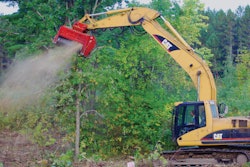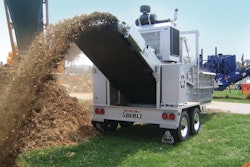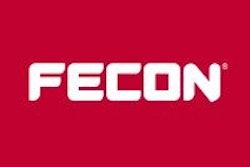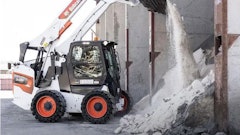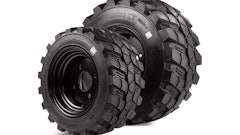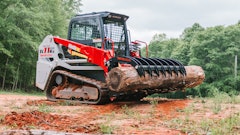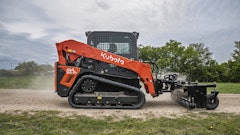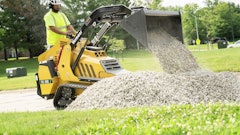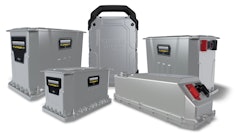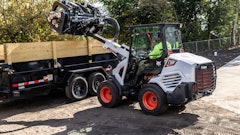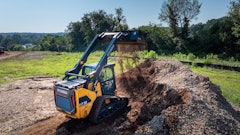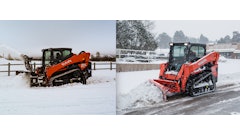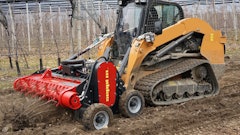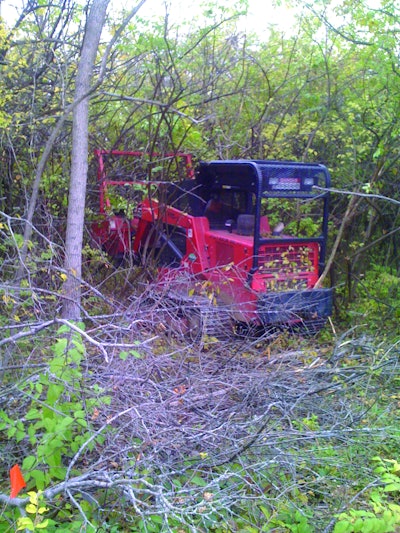
The Five Rivers MetroParks complex, Lebanon, OH, consists of over 15,000 acres of land spread across 25 parks, most of which contain numerous competing ecosystems that support their own indigenous wildlife. Because the woodland tracts grow much more rapidly and aggressively than their prairie counterparts, they will eventually crowd out grasses and replace them with saplings, brush and trees. Before long, they are full-fledged forest areas. Creatures that thrive in grasslands, such as the Grasshopper Sparrow, boblinks and meadowlarks, are adversely impacted, as their native predators now have easy access to their nesting sites.
Massive amounts of manual labor were required to maintain these "edge" areas to keep the woodlands from encroaching onto the prairies. Each tree, shrub and bush had to be cut down with chain saws, hand loppers or weed eaters fitted with steel blades. Once cut, the trees -- some up to 8 inches in diameter and larger -- were then run through a chipper. This method is able to clear just 1/2 acre per day, while the crews using hand lopers (the tool of choice for volunteers) are limited to cutting 2-3 inch stems.
"There were some areas where we can mow with a bushhog," says Deborah McKee, Conservation Specialist, "but most of the areas are beyond that. It is very labor intensive."
Thankfully, MetroParks found relief from a Fecon FTX90, a tracked machine somewhat like a skid steer, but with a mulcher head. "We use the Fecon to re-set the edge habitats where we want them. In the past couple of seasons, we've maintained more than 150 acres," comments McKee.
With hand-clearing, those 150 acres would take a two-person crew 300 days and require $77,000 for labor expenses. Contracting the clearing would cost approximately $20,000. So purchasing the FTX on a GSA contract made sense for the workflow and for the budget.
Invasive species control
The mobile mulcher allows MetroParks crews to mulch around "keeper" trees while eradicating adjacent vegetation. "The FTX is very maneuverable. It can turn on a dime," says McKee.
Edge areas are cleared of all unwanted vegetation and maintained as the MetroParks team sees fit. But the unit is proving itself in non-edge habitats, as well.
In some areas of the parks, invasive species are spreading and crowding out indigenous vegetation. Eradicating such nuisance brush is much faster with the FTX, and the stumps can be mulched into the top layer of the soil, ensuring the invasive species are gone for good.
"We have some programs where we can simply spray the offending shrub which kills them, but it is still standing. That is not aesthetically pleasing," says McKee, "so we prefer to remove them with the mulcher."
The many dams are other non-edge habitat areas where the mulching unit is used, again for aesthetics and appearances, as well as to maintain the dams' structural integrity. "We have a lot of ponds on our properties -- mostly man-made, with levies," McKee notes. "The vegetation grows up to a point where it is not feasible to maintain them with a chain saw or weed eater, so we use the Fecon for vegetation control here, too."
A year-round tool
In addition to the enhanced productivity and maneuverability provided, there are also liability issues to consider. The predominantly volunteer labor force equipped with loppers, weed eaters with saw blades and chippers has been replaced with a single machine that accomplishes more work in a safer manner.
Another aspect that McKee appreciates is the all-weather productivity of the FTX. "Our operator is in a climate controlled environment, with both air conditioning and a heater, so we can work year round," she points out.
While the FTX is used throughout the year, it is not mulching year round. "We're sensitive to mating and breeding schedules, so we do not mulch from mid-March through mid-August," reports McKee. During those periods, the mulcher head is removed and replaced with a bucket for moving mulch, soil or trail projects.
"When Hurricane Ike blew through we lost a lot of trees on our property; a lot of them fell on trails" recalls McKee. "So we went through with the Fecon and cleared some of the trails. It is definitely worth its weight in gold."




